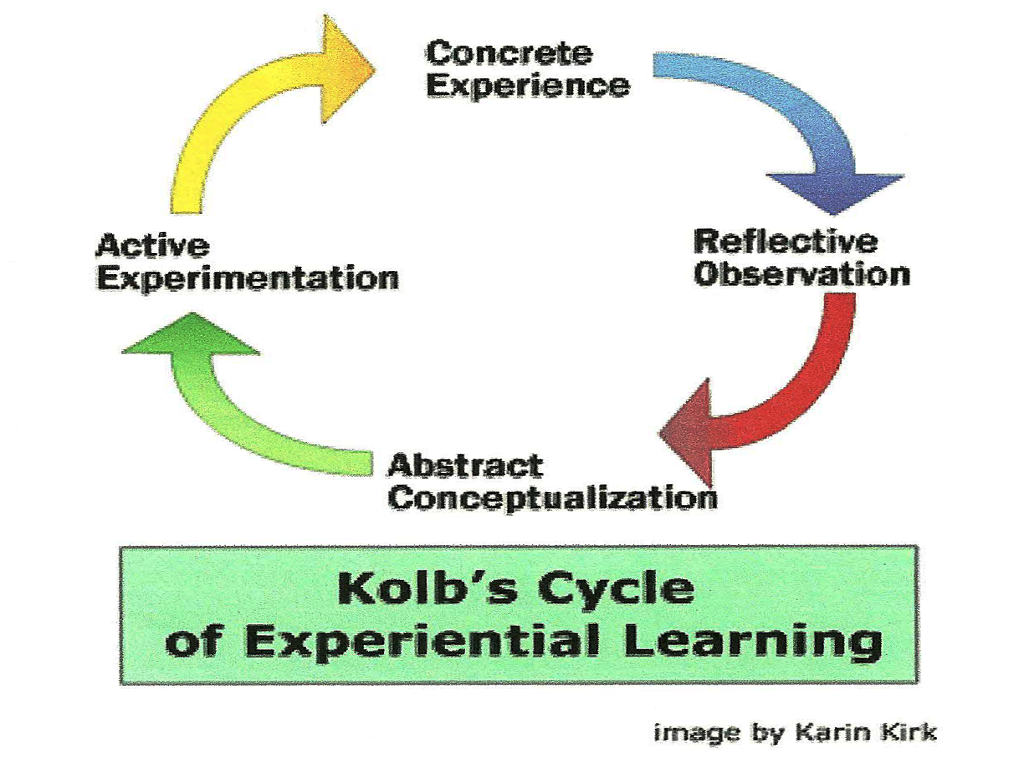Reflective
practice is
"the capacity to reflect on action so as to engage in a process of
continuous learning". According
to one definition it involves "paying critical attention to the practical
values and theories which inform everyday actions, by examining practice
reflectively and reflexively. This leads to developmental insight".
As I have been researching about reflection, I have
realised that I am using it in everyday life. If it is not putting my thoughts
onto paper, I have them in my head or whilst teaching I will record my work and
look back on it later.
Throughout time it is
believed that students learn through experience. However Dewey {1933} believed
that there can be no true growth in learning through experience alone, but by
reflecting on the experience. Schon {1983} believes that through reflective
practice students develop a critical understanding, make sense of the situation
and become competent practitioners.
There are several
models of reflection used in practice. In more formal reflective writing, where
your work is being assessed, it is Important to use a framework. There are
several formal models of reflection which can be used. A model is Gibbs’ model
of reflection (1988). Gibbs’ model of reflection is an everyday process. We reflect
on a range of everyday problems and situations all the time: What went well?
What didn't? Why? How do I feel about it? An outline of this model is given
below.
However Kolb’s {1984}
provides one of the most useful descriptive models available of the adult
learning process, inspired by the work of Kurt Lewin. This learning cycle shows
a model of learning through experience and that there are four stages in
learning which follow from each other."Experiential learning
takes place when a person is involved in an activity, looks back at it
critically, determines what was useful or important to remember, and uses this
information to perform another activity.I found this model particularly useful
when reflecting on my teaching session which I will take forward with me in my
professional practice.
Evaluating the effectiveness of a teaching session is an
important tool if we want to improve on it. There are a number of key issues to
consider. For example, what do you want to evaluate? Why do you want to evaluate
it? When is the best time to evaluate? How will you evaluate and what will you
do with the outcome?
When we first
start teaching, our first worry is, “How am I doing? “rather than “What have
the students learnt?” These anxieties will subside with experience. Improving
student learning is at the heart of the evaluation of the teaching session
therefore the student should be a key source of information. Therefore one of
the most effective ways of getting feedback from students is simply by asking them
at the end of the teaching session or by asking them to write down the main
points they have learnt and the main thing they still didn’t understand from
the session. The main advantage of this approach is that it gives the student a
chance to think more actively about their learning which can have a positive
impact on their development.
Moon believes that
reflection is a form of mental processing – like a form of thinking – that we
use to fulfil a purpose or to achieve some anticipated outcome. It is applied
to relatively complicated or unstructured ideas for which there is not an
obvious solution and is largely based on the further processing of knowledge
and understanding and possibly emotions that we already possess.
Moon (1999) suggests that
the differences in approach are accounted for largely by different focuses -
either on the process of reflection, on the purpose for it or the outcomes of
reflection – in effect, how it is used. Schon, for example, is concerned about
reflection as a mechanism for professional and perhaps personal development
while. Kolb explores the role of
reflection in learning – setting a context for it, but referring relatively
little to reflection itself. Dewey is exceptional in taking a holistic view of
reflection as a process – a view that accords with the common sense definition
above.
I usually have a lesson plan before I go into teaching a
class; however it doesn’t always go to plan due to time, disruptions and the
unknown. So, then I use my experience and knowledge to continue even though it
may not have gone to plan. At the end of the session I take five minutes to
reflect the positives and negatives and how I would go about things differently
next time. Even when my day is over, I still find myself reflecting when I am
lying in bed or drifting off to sleep as I am so passionate about what I do.
References
Dewey, J.(1993). How we think.
Boston: D. C.Heath.
Kolbs,D.A. and Fry,R.(1975) Towards an applied theory of experimental
learning, in Cooper,C.L.(ED.) (1976) op.cit
Moon J. (2001) Personal development planning.University of
Exeter
Schon, D. [1983]. The reflective practitioner: How professionals think in action. London: Temple-Smith.


No comments:
Post a Comment